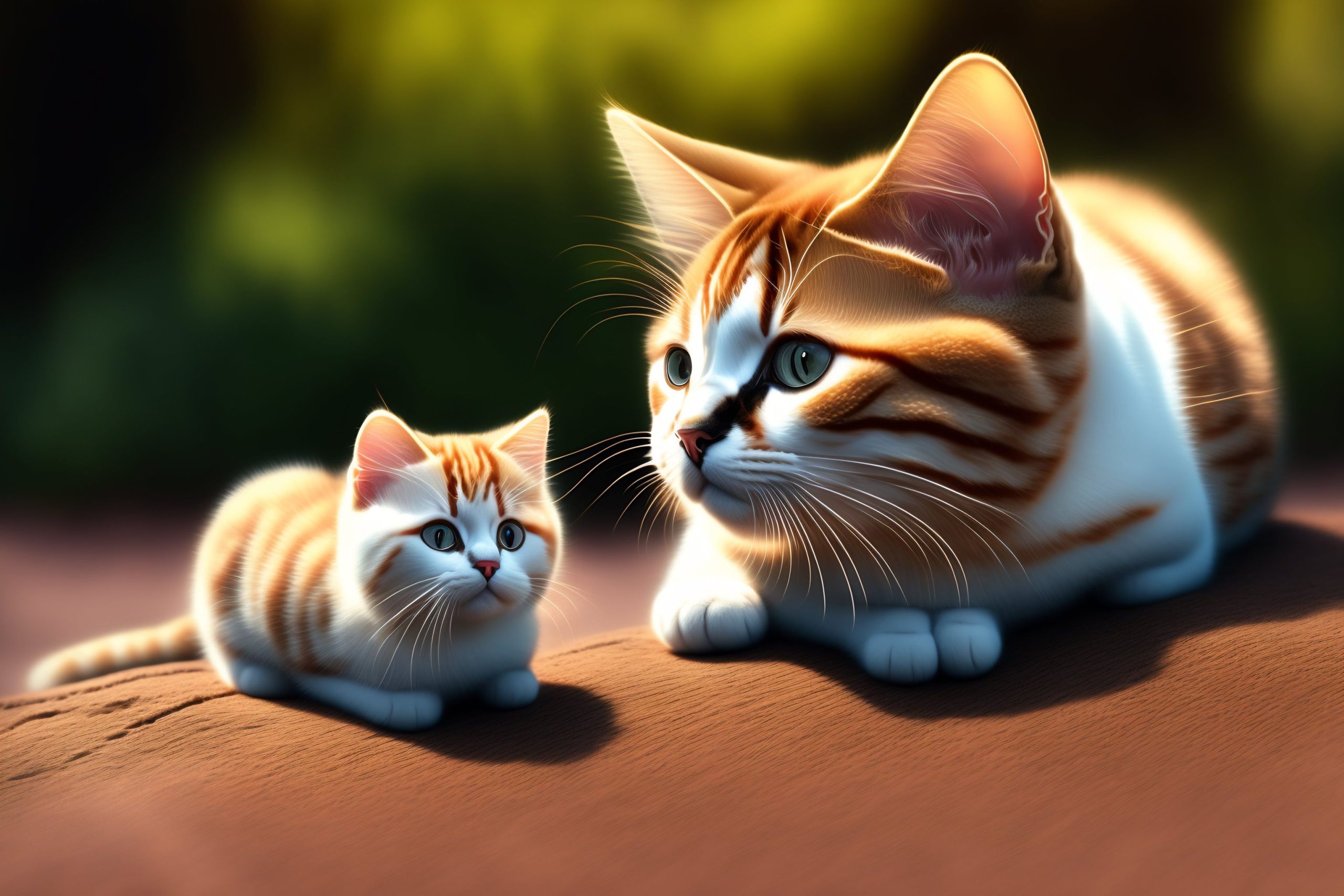Why Do Cats Eat Their Babies? Cats are mysterious creatures, and their behavior often leaves us intrigued and puzzled. One such perplexing behavior that cat owners may encounter is the mother cat eating her own kittens. It’s a distressing sight and raises a lot of questions. In this article, we will delve deep into this unusual behavior and try to understand why cats eat their babies.
-
Why Do Cats Eat Their Babies?
1.1 Understanding the Natural Instincts
To comprehend why mother cats sometimes resort to eating their own kittens, we must look into their natural instincts. Cats are predatory animals, and they have evolved over thousands of years with a strong drive to ensure the survival of their species.
In the wild, where resources are scarce, a mother cat might eat a dead or weak kitten to eliminate any potential threat to the rest of her litter. This behavior can be seen as a way to cull the weakest members of the litter to increase the chances of survival for the stronger ones.
1.2 Stress and Anxiety
Just like humans, cats can experience stress and anxiety. When a mother cat is under excessive stress or feels threatened, her maternal instincts may become disrupted. This can lead to erratic behavior, including the consumption of her own kittens.
Stressors can vary, from changes in the environment to disturbances by other animals or humans. Providing a calm and secure environment for the mother cat during pregnancy and nursing can help mitigate this risk.
1.3 Health Issues
Health problems can also be a contributing factor to a mother cat eating her kittens. If the mother is unwell or suffering from a nutritional deficiency, she may perceive her kittens as a source of nourishment. In such cases, it’s essential to address the underlying health issues and ensure the mother cat receives the proper care and nutrition.
-
Preventing Cannibalism in Cats
Now that we’ve explored the reasons behind this behavior, let’s discuss how to prevent it.
2.1 Creating a Safe Environment
Providing a safe and stress-free environment is crucial during the pregnancy and nursing periods. Keep the mother cat in a quiet, comfortable, and secure space where she can care for her kittens without feeling threatened. Minimize disturbances, and ensure she has a cozy nesting area.
2.2 Proper Nutrition
Proper nutrition is vital for both the mother cat and her kittens. Ensure that the mother receives a balanced diet formulated for pregnant and nursing cats. Nutrient deficiencies can trigger unusual behaviors, including cannibalism.
2.3 Early Intervention
If you notice any signs of stress or unusual behavior in the mother cat, seek professional veterinary advice immediately. Early intervention can prevent the situation from escalating, and the veterinarian can recommend appropriate treatments or interventions.
In conclusion, while the idea of a mother cat eating her kittens may be distressing, it’s essential to understand the underlying reasons behind this behavior. Cats are driven by natural instincts, and various factors, including stress and health issues, can lead to such actions.
As responsible cat owners, our role is to create a safe and nurturing environment for our feline companions. By understanding and addressing the potential triggers for cannibalism, we can help ensure the well-being of both mother cats and their kittens.
FAQs
Q1: Is it common for mother cats to eat their kittens?
A1: No, it’s not common, but it can happen under specific circumstances. Understanding and addressing the causes can help prevent this behavior.
Q2: Can a mother cat be trusted with her kittens after displaying this behavior?
A2: After addressing the underlying causes and ensuring a safe environment, many mother cats can be trusted with their kittens. However, close monitoring is recommended.
Q3: Should I separate the mother cat from her kittens if she exhibits cannibalistic behavior?
A3: Separation should be a last resort. Instead, focus on addressing the causes and providing a secure environment. Consult a veterinarian for guidance.

